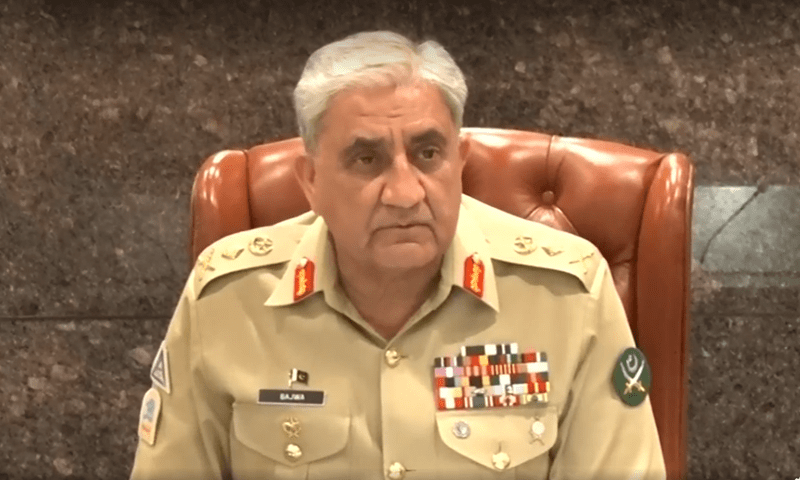Army’s top brass reposes ‘full confidence’ in Pakistan’s ‘robust’ security of nuclear, strategic assets

The army’s top brass reposed on Tuesday complete confidence in Pakistan’s nuclear command and control structure and security arrangements for safeguarding the country’s strategic assets.
In a statement issued after the 252nd Corps Commanders’ Conference, the military’s media affairs wing said, “Forum reposed full confidence in Pakistan’s robust nuclear command and control structure and security arrangements related to country’s strategic assets.
“As a responsible nuclear weapon state, Pakistan has taken all measures necessary to strengthen its nuclear security regime, at par with international best practices,” the meeting at the General Headquarters was told.
The military leadership’s assertion comes after US President Joe Biden raised doubts about Pakistan’s nuclear arsenal last week, saying that the country may be “one of the most dangerous nations in the world”.
He made the remarks during a Democratic congressional campaign committee reception last Thursday while speaking about the changing geopolitical situation globally.
The Chinese president, Xi Jinping, was a man who knew what he wanted but had an “enormous” array of problems, the US president said.
“How do we handle that? How do we handle that relative to what’s going on in Russia? And what I think is maybe one of the most dangerous nations in the world: Pakistan. Nuclear weapons without any cohesion,” Biden had gone on to say.
The remarks created an uproar in Pakistan, with Acting Foreign Secretary Jauhar Saleem calling in US Ambassador in Islamabad Donald Blome to deliver a “strong demarche” for Biden’s comments.
“Pakistan’s disappointment and concern were conveyed to the US envoy on the unwarranted remarks, which were not based on ground reality or facts.
“It was made clear that Pakistan was a responsible nuclear state and its impeccable stewardship of the nuclear programme and adherence to global standards and international best practices was well acknowledged, including by the IAEA (International Atomic Energy Agency),” a statement issued by the Foreign Office last Friday said.
Meanwhile, Prime Minister Shehbaz Sharif rejected US Biden’s comments as “factually incorrect and misleading”.
Pakistan had proven to be a “most responsible nuclear state” over the past decades whose nuclear programme was managed through a “technically sound and foolproof command and control system”, a statement issued by the Prime Minister’s Office quoted him as saying.
For their part, US officials have come up with clarifications over Biden’s statement on at least occasions.
Last Friday, US Press Secretary Karine Jean-Pierre said that the US president viewed a “secure and prosperous” Pakistan as “critical” to its interests.
She added that there was “nothing new” to his remarks as he had made similar comments before too.
More recently, US State Department spokesperson Vedant Patel told journalists in Washington shortly after a meeting between Ambassador Masood Khan and Counselor Derek Chollet on Monday that America was confident of Pakistan’s ability to keep its nuclear assets safe and secure.
Security situation discussed
Among other matters discussed during the Corps Commanders’ Conference today was the country’s security situation.
“Participants took a comprehensive review of the prevailing internal and external security situation and operational preparedness of the army,” the Inter-Service Public Relations (ISPR) statement said.
It added that Chief of Army Staff (COAS) General Qamar Javed Bajwa, who presided over the meeting, expressed satisfaction over the operational preparedness of the formations and reiterated the army’s resolve to defend the motherland against all threats.
“The COAS lauded formations’ operational readiness and sustained efforts during flood relief duties,” the statement read.
It further said the forum was briefed on the army’s assistance to the civil administration for relief and rehabilitation efforts in flood-affected areas and the post-flood situation, particularly in Sindh and Balochistan.














































